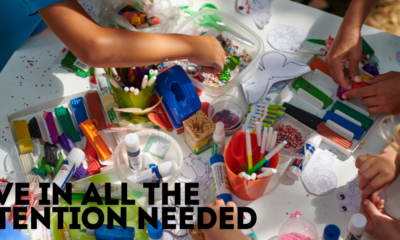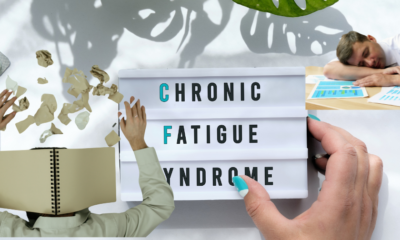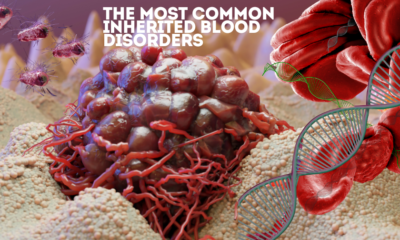Mental Health
Mental Health Resources: Finding the Support You Need

Mental health, an integral component of overall well-being, encompasses the emotional, psychological, and social dimensions of our lives. It influences how we think, feel, and behave, as well as how we handle stress, make decisions, and relate to others. In today’s fast-paced and often overwhelming world, the importance of maintaining good mental health is becoming more widely recognized. However, recognizing the need for mental health support is only the first step; finding the appropriate resources and support can often be challenging.
Understanding Mental Health
Mental health is a spectrum, ranging from well-being to conditions that impair everyday functioning. Mental health problems can affect anyone, regardless of age, gender, socioeconomic status, or background. These problems can manifest in various ways, such as persistent sadness, anxiety, difficulty concentrating, changes in sleep or appetite, or engaging in harmful behaviors. Mental health disorders, such as depression, anxiety disorders, bipolar disorder, schizophrenia, and post-traumatic stress disorder (PTSD), are common and treatable, but they require access to the right resources.
It is essential to understand that mental health challenges are not a sign of weakness, nor should they carry stigma. Just as people seek help for physical illnesses, seeking support for mental health is a crucial aspect of overall health. Resources to support mental health are varied and include therapeutic interventions, medications, lifestyle changes, and community support systems.
The Importance of Seeking Support
Early intervention can make a significant difference in the outcome of mental health challenges. When left untreated, mental health disorders can lead to a decreased quality of life, impaired relationships, reduced productivity, and in some cases, substance abuse or even suicide. For many, the fear of judgment, lack of knowledge, or uncertainty about where to find help creates barriers to seeking support. Raising awareness about the availability of mental health resources is crucial to bridging this gap.
One of the first steps to improving mental health is recognizing when professional help is needed. Warning signs may include prolonged feelings of hopelessness, withdrawal from social activities, drastic changes in mood or behavior, difficulty coping with everyday stress, or thoughts of self-harm. While it is normal to experience ups and downs, when these feelings persist or begin to interfere with daily life, professional assistance may be necessary.
Types of Mental Health Resources
There is no one-size-fits-all solution for mental health. Different people have different needs, and the mental health care system offers a wide variety of resources to meet these needs. Below are the primary categories of mental health resources and how they can provide the support you need.
1. Professional Therapy and Counseling
Therapy, or counseling, is one of the most widely recognized forms of mental health treatment. Professional therapists and counselors are trained to help individuals understand and cope with their emotions, behaviors, and thought patterns. Therapy can take many forms:
Cognitive Behavioral Therapy (CBT): This is one of the most common forms of therapy used to treat anxiety and depression. CBT helps individuals identify negative thought patterns and replace them with more constructive ones. The goal is to change the behaviors that arise from these thoughts and improve emotional well-being.
Dialectical Behavior Therapy (DBT): DBT is a type of therapy that emphasizes emotional regulation and interpersonal effectiveness. Originally developed to treat borderline personality disorder, DBT is now used for various mental health conditions, especially those involving self-harm or intense emotional responses.
- Psychodynamic Therapy: This type of therapy is focused on uncovering unconscious thoughts and feelings that may influence behavior. By understanding the root of emotional problems, individuals can address unresolved issues from the past.
- Humanistic Therapy: Humanistic approaches, such as person-centered therapy, focus on the individual’s ability to make rational choices and develop their fullest potential. It emphasizes empathy, self-acceptance, and personal growth.
- Group Therapy: Group therapy involves a therapist leading a group of individuals who may share similar challenges. This type of therapy can help people realize they are not alone, and hearing others’ experiences can provide comfort and support.
Finding the right therapist or counselor is a personal journey. Many people go through a process of trying different therapists before finding the right fit. It’s important to find someone who makes you feel understood, validated, and comfortable.
2. Psychiatric Support and Medication
While therapy can be highly effective for many people, some mental health conditions also require medication. Psychiatrists are medical doctors who specialize in diagnosing and treating mental health disorders, often through a combination of medication and therapy.
- Antidepressants: These medications are commonly prescribed for depression and anxiety disorders. They work by balancing neurotransmitters in the brain, such as serotonin and dopamine, which regulate mood.
- Anxiolytics and Sedatives: These medications are used to manage anxiety and panic disorders. They can help reduce the physical symptoms of anxiety, such as rapid heartbeat or trembling, and calm the mind.
- Mood Stabilizers: For individuals with bipolar disorder or mood swings, mood stabilizers help to balance extreme highs and lows, making emotions more manageable.
- Antipsychotics: These medications are used to treat severe mental health conditions such as schizophrenia. They help manage symptoms like delusions, hallucinations, and erratic behavior.
Medication can be a crucial component of treatment for individuals whose mental health challenges have a biological basis. However, finding the right medication often requires a process of trial and error, as individuals can respond differently to various treatments.
3. Crisis Intervention Services
Mental health crises, such as suicidal ideation or psychotic episodes, require immediate intervention. Crisis intervention services are designed to provide rapid support in emergencies. Some of these services include:
- Suicide Hotlines: National or local suicide prevention hotlines offer confidential, immediate support for individuals in crisis. These hotlines, such as the 988 Suicide & Crisis Lifeline (formerly known as the National Suicide Prevention Lifeline) in the United States, provide 24/7 access to trained counselors who can offer support and guide individuals to additional resources.
- Crisis Text Lines: For those who prefer not to speak on the phone, crisis text lines offer an alternative form of immediate support. Individuals can text a hotline and connect with a trained volunteer or counselor who will provide guidance and help manage the situation.
- Mobile Crisis Units: These are teams of mental health professionals who can be dispatched to homes, schools, or community spaces to provide on-site support during a mental health crisis.
- Emergency Rooms and Inpatient Care: In cases where immediate medical intervention is required, emergency rooms provide psychiatric evaluation and stabilization. If necessary, individuals may be admitted to an inpatient psychiatric unit for intensive care and monitoring.
4. Online and Telehealth Resources
With the advent of technology, online and telehealth services have become an increasingly popular and accessible way to receive mental health support. Online therapy platforms like BetterHelp, Talkspace, and others offer licensed therapists who provide counseling through video, phone calls, or messaging.
Telehealth allows individuals to access therapy without the need for travel, making it easier for those in rural or underserved areas to get the help they need. In addition, some people find online therapy less intimidating, allowing them to open up more easily.
Other online resources include self-help apps, such as mindfulness and meditation tools, which can be effective for managing stress, anxiety, and depression. Apps like Headspace, Calm, and Moodfit offer guided meditations, breathing exercises, and cognitive exercises to help individuals build resilience and emotional regulation skills.
5. Community and Peer Support
One of the most effective sources of mental health support is community. Peer support groups provide a safe space for individuals to share their experiences and learn from others who have faced similar challenges.
- 12-Step Programs: Programs like Alcoholics Anonymous (AA) or Narcotics Anonymous (NA) are well-known for their peer-support approach to addiction recovery. These programs provide a structured framework for individuals to share their struggles and progress with others who understand their journey.
- Support Groups: Mental health support groups can be tailored to specific conditions, such as depression, anxiety, or PTSD. These groups offer validation and understanding from people who have had similar experiences, creating a sense of solidarity and reducing feelings of isolation.
- Community Centers and Nonprofits: Many communities have mental health centers that provide free or low-cost services, including counseling, support groups, and wellness programs. Nonprofits such as the National Alliance on Mental Illness (NAMI) offer educational resources and peer-led programs to help individuals and families affected by mental illness.
- Faith-Based Support: For those who are religious or spiritual, many faith-based organizations offer counseling and support rooted in spiritual beliefs. These resources can be especially helpful for individuals seeking guidance that aligns with their faith.
6. Workplace Mental Health Resources
Employers increasingly recognize the impact of mental health on productivity, employee satisfaction, and overall workplace culture. As a result, many companies now offer mental health resources through employee assistance programs (EAPs).
EAPs provide confidential counseling services for employees and their families, often at no cost. These programs typically cover a range of mental health issues, from stress management to substance abuse. Additionally, some companies offer workshops, mental health days, or mindfulness programs to promote emotional well-being in the workplace.
Open communication about mental health in the workplace can also reduce stigma and encourage employees to seek the help they need without fear of judgment.
7. Self-Help and Wellness Practices
In addition to professional help, self-help strategies can complement formal treatment and contribute to overall mental well-being. These practices often focus on lifestyle changes that promote physical, emotional, and psychological health:
- Exercise and Physical Activity: Regular exercise has been shown to improve mood, reduce anxiety, and increase self-esteem. Physical activity releases endorphins, the body’s natural mood elevators, which can help alleviate symptoms of depression and anxiety.
- Mindfulness and Meditation: Mindfulness practices involve staying present in the moment and observing one’s thoughts without judgment. Mindfulness meditation has been proven effective in reducing stress, improving focus, and enhancing emotional regulation.
- Healthy Eating and Sleep Habits: Nutrition and sleep play significant roles in mental health. A balanced diet rich in omega-3 fatty acids, antioxidants, and vitamins can support brain function and emotional balance. Similarly, adequate sleep is essential for cognitive function, mood regulation, and overall well-being.
- Journaling and Creative Expression: Writing down thoughts, feelings, and experiences can help individuals process emotions and gain perspective on their mental health journey. Creative outlets, such as art, music, or dance, also offer ways to express emotions and reduce stress.
Navigating Barriers to Accessing Mental Health Resources
Despite the increasing availability of mental health resources, many people face barriers to accessing care. These barriers can be financial, geographical, cultural, or related to stigma. Understanding these obstacles and finding ways to overcome them is essential for ensuring that individuals receive the support they need.
1. Financial Barriers
The cost of mental health care can be a significant barrier for many individuals. Therapy sessions, psychiatric visits, and medications can be expensive, especially for those without insurance. However, there are options for affordable care:
- Sliding Scale Therapy: Many therapists offer sliding scale fees based on income, making therapy more affordable for those with limited financial resources.
- Community Clinics: Local community health centers often provide low-cost or free mental health services to those in need.
- Insurance Coverage: Under the Affordable Care Act, mental health services are considered essential health benefits, meaning that insurance plans are required to cover mental health care to some extent. Checking with your insurance provider to understand what services are covered is essential.
Navigating Barriers to Accessing Mental Health Resources
2. Geographical Barriers
In rural or remote areas, access to mental health care can be limited due to a shortage of mental health professionals or long travel distances. Fortunately, there are ways to overcome geographical barriers:
- Telehealth Services: As mentioned earlier, telehealth has made mental health services more accessible to individuals in underserved areas. Online platforms allow for therapy, psychiatric consultations, and follow-up care from the comfort of home.
- Community-Based Support: In many regions, community organizations provide mental health services through outreach programs, offering support in accessible locations or via mobile health clinics.
3. Cultural Barriers and Stigma
Cultural beliefs, language barriers, and social stigma often prevent people from seeking mental health care. Certain cultures may view mental illness as a sign of weakness or may not prioritize mental health treatment.
- Culturally Competent Care: It’s important to find mental health professionals who are culturally sensitive and can offer services in a client’s preferred language. Some clinics and therapists specialize in providing care that respects cultural backgrounds, which can make therapy more effective and comfortable.
- Education and Advocacy: Raising awareness about mental health and reducing stigma is essential. Education campaigns, advocacy groups, and mental health champions in communities can help to normalize mental health discussions and encourage people to seek help.
Taking the First Step Towards Mental Wellness
The journey to mental wellness can be challenging, but it begins with recognizing the need for help and understanding that mental health is as important as physical health. The resources available for mental health care are broad and diverse, offering individuals various pathways to recovery and well-being. Whether through professional therapy, peer support, medication, or self-help practices, the key is to find the right combination of resources that work for your unique needs.
Barriers to accessing mental health care whether financial, geographical, or cultural can be significant, but with perseverance and the growing availability of services, it is possible to find the support needed. Telehealth services, affordable community clinics, culturally competent care, and workplace programs are just a few of the ways that mental health resources are becoming more accessible to all.
Ultimately, mental health care should be viewed as an essential part of overall health. Whether you are facing a mental health crisis or simply seeking ways to manage stress and improve your well-being, the first step is reaching out. By utilizing the wealth of available resources, you can find the support you need to lead a healthier, more fulfilling life. The road to recovery may take time, but with the right support, it is entirely possible to achieve mental wellness and thrive.
-

 Press Release3 days ago
Press Release3 days agoClinical Trials Market Set for Robust Growth, Driven by Drug Development Surge and Digital Innovation
-

 Press Release6 days ago
Press Release6 days agoBellarium ($BEL) Price Prediction: Could It Hit $5 by 2026?
-

 Business5 days ago
Business5 days agoHow Managed IT Solutions Help Small Teams Compete at Enterprise Scale
-

 Press Release4 days ago
Press Release4 days agoIndustrial Boiler Market Expected to Surpass USD 24.4 Billion by 2035 Amid Growing Demand for Energy Efficiency and Industrialization
-

 Press Release4 days ago
Press Release4 days agoFill-Finish Pharmaceutical Contract Manufacturing Market Expected to Flourish Amid Biopharmaceutical Boom and Global Outsourcing Trend by 2035
-

 Press Release4 days ago
Press Release4 days agoPreventive Vaccines Market to Witness Strong Growth by 2035
-

 Press Release4 days ago
Press Release4 days agoGreen Bio Chemicals Market Poised for Sustainable Growth amidst Global Shift to Eco-Friendly Alternatives by 2035
-

 Press Release4 days ago
Press Release4 days agoPet Food Nutraceutical Market Set for Robust Expansion Amid Rising Demand for Pet Wellness by 2035






























